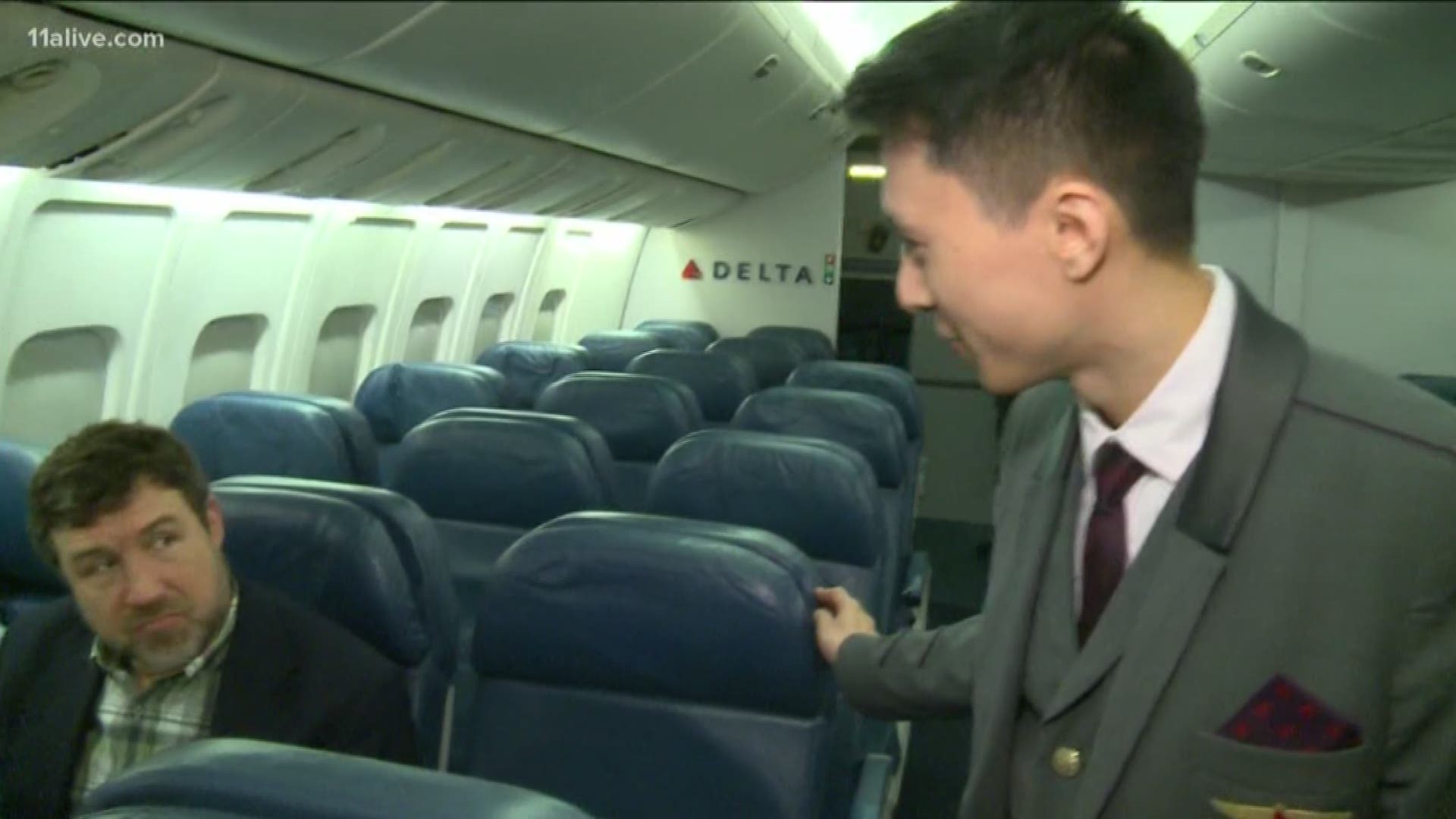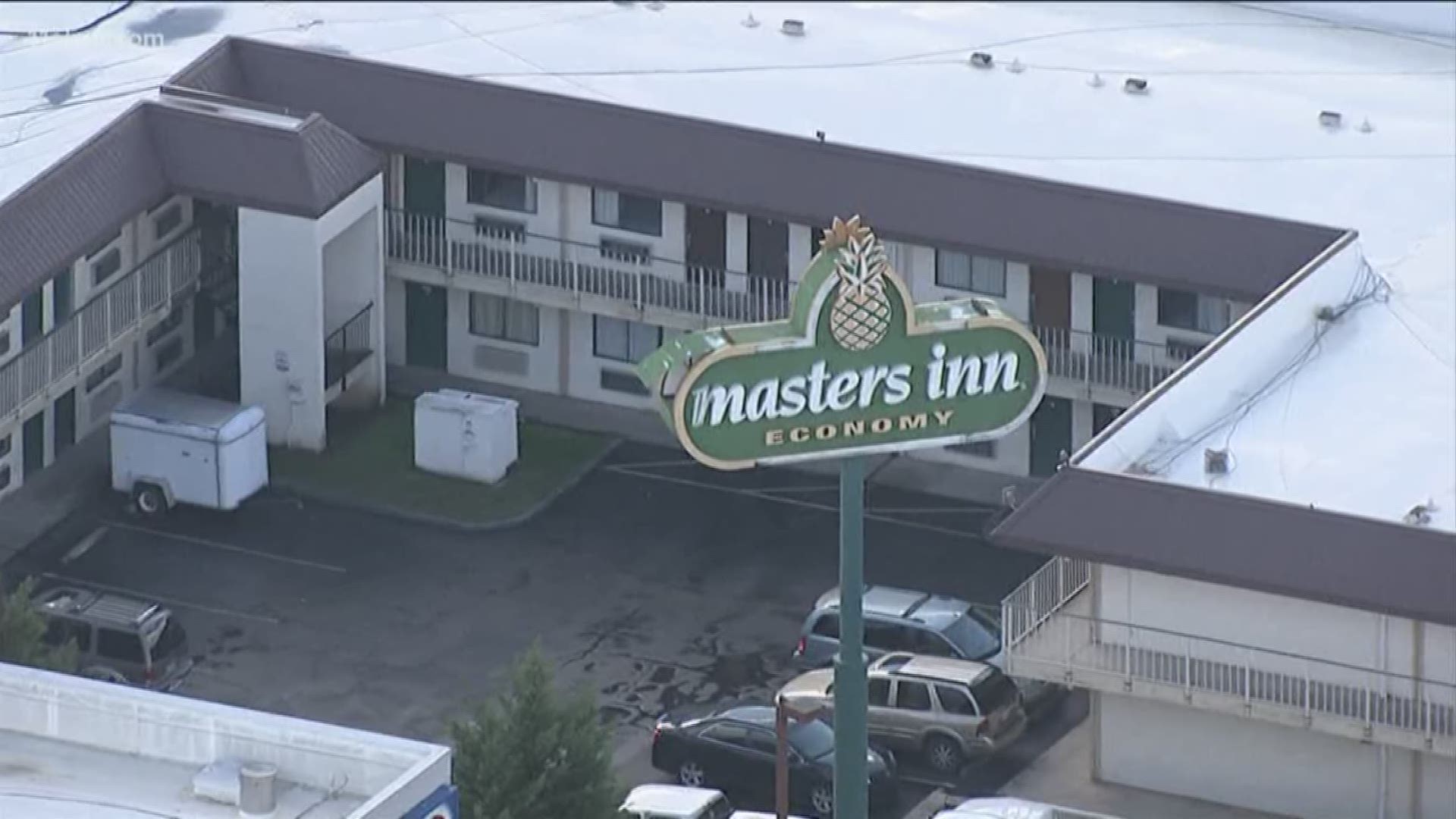ATLANTA — From the moment someone steps onto the plane, the work begins to try and help possibly change that person's life.
“She doesn’t have a purse or a boarding pass,” Kimberly Duran with Delta Air Lines said. “She didn’t know where she was going.”
Even avoiding a glance can signal that a person or child needs help, but cannot ask for it. Some signs can be isolation, control - manipulation of another human being, she said.
These are the signs Delta employees have learned through training similar to this. These are actors playing the role of trafficker and victim.
Flight attendants work together gathering and sharing information.
“We look for someone with lack of control, they may not have documents, no knowledge of travel arrangements, lack of freedom to socialize or speak for herself,” Duran said.
Delta employees are all trained to spot the signs and, if there are enough of them, to report their findings to a national hotline that takes it from there.
“It is not our role to be law enforcement,” Duran explained. “But we can make those observations and share anything that needs to be reported.”
It’s a situation where simply observing something can change a person’s fate.
“It does open your eyes and make you more vigilant, not just on the airplane,” Andrew Fields, with Delta Air Lines, said.
“It’s our opportunity to give back,” Allison Ausband, the senior vice president of in-flight services, added. “It’s our social responsibility with millions of people coming through - the chance to help is all around us.”
It’s a process that occurs every day, and now even more so with the Super Bowl in Atlanta.
“It is sad but true. Every day at Delta we get a report of what someone reports is a potential human trafficking case,” Ausband said.
From its home base in Georgia, Delta takes advantage of its global reach and the 80,000 employees to help eradicate human trafficking
“For us, it is about that person - that they can become a survivor and they can move on,” Ausband said.
“Delta, at the end of the day, when we lay our head down, we know that we did our part,” Julie McGourik said.
Delta customers can also donate their flight miles to help human trafficking victims. In 2018, they helped 57 survivors return home.
Delta works with Polaris and it’s building one of the largest public data sets on human trafficking in the United States. It also helps serve victims and survivors. The information Polaris gathers is shared with law enforcement. To learn more about the project and how to donate, visit the Polaris Project website.
If you believe you may have information about a trafficking situation, call the National Human Trafficking Hotline toll-free at 1-888-373-7888. Anti-trafficking hotline advocates are available 24/7 to take reports of potential human trafficking. Alternatively, you can text the National Human Trafficking Hotline at 233733 or visit the organization’s website to chat with an advocate.
Tips can also be submitted anonymously online. However, if the situation is urgent or occurred within the last 24 hours, officials encourage you to call, text or chat.
The information you provide in these cases will be reviewed by the National Hotline but all reports are confidential and you can remain anonymous. Interpreters are also available via phone call only.
Learn more about the hotline's approach and policies regarding reporting trafficking situations to law enforcement.
You can also report missing children or child pornography to the National Center for Missing and Exploited Children (NCMEC) at 1-800-843-5678 (THE-LOST) or through their CyberTipLine.
MORE HUMAN TRAFFICKING STORIES |


